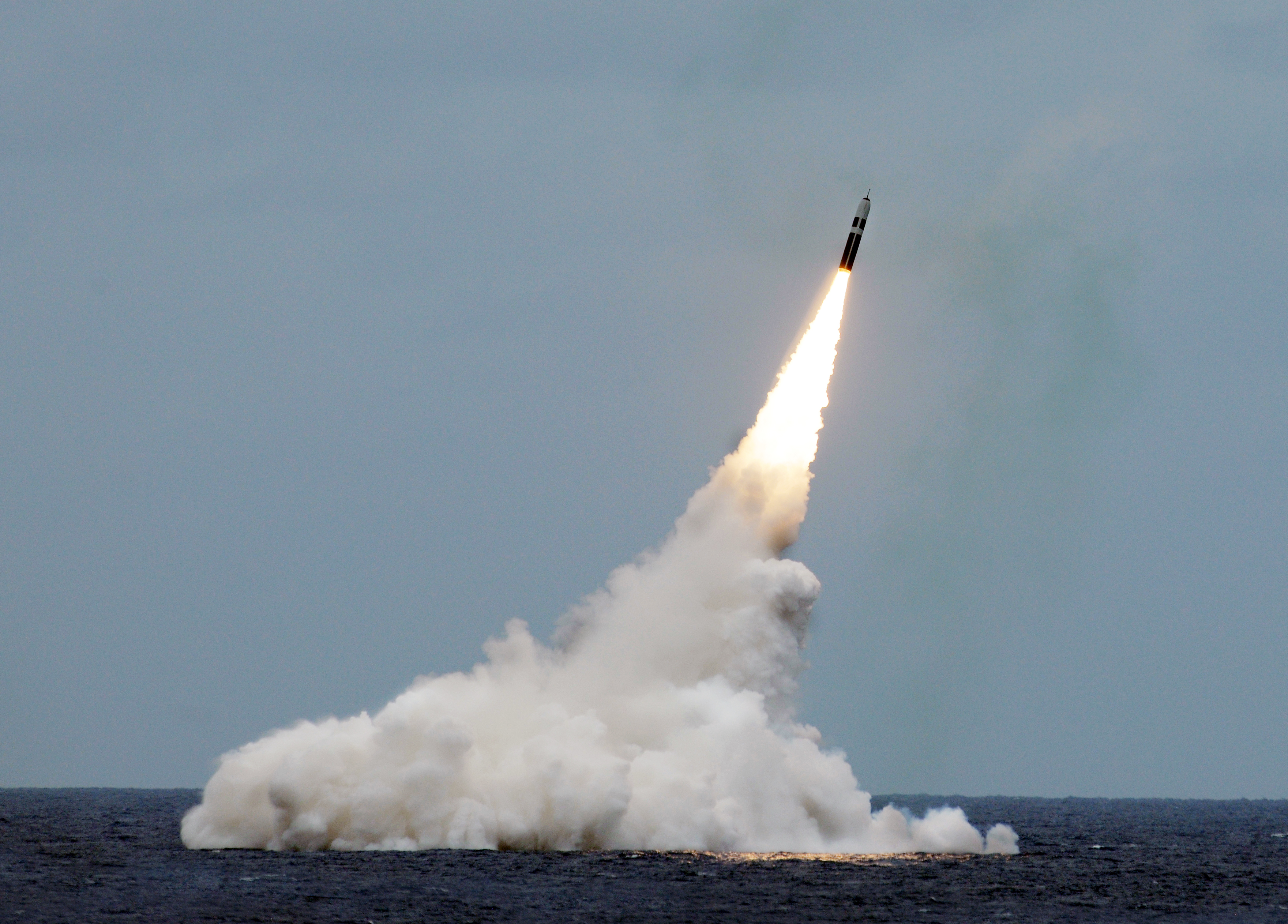House Prepares To Debate Low-Yield Nukes, $17B Gap in Defense Funding
Posted on

Navy test of a Trident Submarine-Launched Ballistic Missile (SLBM)
WASHINGTON: The battle lines have been clearly marked between Democrats and Republicans on the House Armed Services Committee, with $17 billion and differing visions of the role of nuclear weapons in US security policy separating the two as they prepare to hash out the 2020 defense policy bill.
A day before Wednesday’s marathon markup where dozens of amendments will be dealt with quickly, ranking member Mac Thornberry offered up an amendment directly challenging the Democrat’s version, pushing the topline back to the Trump administration’s requested $750 billion from the Democrats’ $733 offer.
Republicans have already said that Smith’s mark, which eliminates a low-yield submarine-launched nuclear missile that the Navy and White House both claim is necessary to counter Russian nuclear doctrine, and cuts other nuclear nuclear and missile defense programs, is a non-starter.
Speaking with reporters Tuesday morning, Thornberry said “I’m not drawing a red line on any one thing,” but he thinks it’s critical to keep nuclear weapons and infrastructure programs fully funded.
Thornberry also revealed there will be an amendment offered Wednesday to keep the Ground Based Strategic Deterrent program funny funded, a capability Smith mark cut by $103 million.
Despite being critical of the size of the US nuclear force, Smith’s proposed bill retains support for the Navy’s Columbia-class ballistic missile submarine program, and new long-range nuclear missiles.
Overall, however, Thornberry said “I have not reached a decision, nor do I think any members on my side of the aisle have reached a decision on how to vote on final passage. But we will have an amendment to deal with low-yield. We will have an amendment to deal with Ground Based Strategic Deterrent.”
While most of the Republican efforts in the Democratically-controlled House will likely fail, the coming debate offers a glimpse of the coming budget fights in the Senate, where many of the Democratic initiatives will likewise run into a brick wall.
HASC chairman Adam Smith conceded he would face opposition both within HASC Democrats and with the Senate, during Monday remarks at CSIS. “Democracy doesn’t mean that you win all the time, but it does mean that you have an opportunity to offer your ideas, debate them, and have a fair vote on it. That’s what we’re going to do in committee,” he said.
“You know, I can count and I don’t think I have the votes to change [nuclear] policy, but what I’ve tried to do this year is to force that debate to have a discussion. And so, we’re going to have that argument and I don’t know how it’s going to come out of committee, but we’ll live with the result and move forward.”
(Breaking D readers will remember that we have predicted the Dems would almost certainly back down on nuclear issues. They are seminal in strategic terms and almost nobody in a responsible position disagrees with the basics of nuclear deterrence — when it comes down to it.)
Thornberry’s amendment to push the budget back up to $750 billion essentially puts back everything Smith’s mark eliminated, including $3.6 billion “to replenish military construction accounts diverted by border barriers.”
Subscribe to our newsletter
Promotions, new products and sales. Directly to your inbox.
